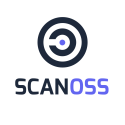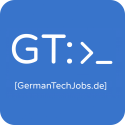The Theia and Eclipse CloudDev Tools Community Meetup is a great opportunity to connect, learn from each other, and share community/project updates.
Agenda
| Time (CET) | Presenter | Title | Description |
| 14:00 | Tim deBoer | Introductions | |
| 14:10 | Jonas Helming | Theia Introduction | |
| 14:15 | Philip Langer and Miro Spönemann | Combining textual and graphical editors | In this joint presentation, we talk about combining text and graphics into a coherent tool. We identify five basic approaches with highly varying user experience and implementation effort. This scheme can serve as a guideline for the fundamental architectural decisions that have to be made early in a custom tooling project involving both textual and graphical representations. Finally, we discuss how the relevant frameworks – GLSP, Sprotty, Langium, Xtext – can be applied in different combinations, and demonstrate a few examples. |
| 14:45 | Matthew Khouzam | What is a frame inspector. Things I wish I knew before debugging UIs. | Graphics debuggers are great. However, they are poorly advertised outside of certain industries. In this talk, I will show a couple of graphical debuggers that can help with the day to day UI debugging, show certain gaps and how they can fit into a full-stack/front-end developer's tool belt. This talk is aimed at novices. Advanced users can learn most of what will be said by searching for "Graphics debugger" in their favourite search engine, however, this may save them a few minutes too! |
| 14:50 | Matthew Khouzam | Securing OpenVSX, because Theia without plug-ins is not fun. | Theia is a great platform. But a platform alone is not very useful. In the corporate environment, one cannot just ship any plugin to its developers and there are many security risks that happen. We are attempting to secure the software chain in an open way and would like to share the plan.
|
| 15:05 | Jonas Helming | EMF.cloud News and Noteworthy | |
| 15:15 | Break | ||
| 15:45 | Irina Artemeva | Shaping semantic models with Langium | Every first step towards any programming or domain specific language starts with parsing source code into an abstract syntax tree. This is the foundation on which one starts building further language support, such as interpreters, compilers, or IDE functionality. Consequently, how one determines to shape their semantic model directly impacts how to implement these advanced features. We have seen language engineering frameworks, such as Eclipse Xtext, infer semantic models from grammar declarations. This approach has proven to be very useful for prototyping languages as well as designing mature language systems. As Xtext's spiritual successor, Langium has adopted, simplified, and improved this idea. This talk focuses on the features and systems that Langium employs to infer and create semantic models. We will discuss how Langium has enhanced Xtext methods, to bring them to a level that modern developers expect. In our demonstration, you will get to see Langium's features and capabilities in action while we build a new DSL. |
| 16:15 | Philip Langer | End-to-end testing Theia applications with Playwright | Theia is increasingly used as a basis for industrial-grade development and engineering tools. It is clear that such tools require proper means to ensure quality. This usually includes unit and integration testing, but also automated end-to-end testing. For end-to-end tests, Theia now provides a dedicated page object library to simplify the development and maintenance of automated end-to-end tests for Theia applications. This library is built on a popular browser automation framework called Playwright (https://playwright.dev) and encapsulates many of the complex aspects of writing end-to-end tests for Theia applications, while still being extensible to add support for custom extensions of Theia, such as custom views, custom menus, etc. With this encapsulation, the complexity of UI interactions, wait conditions, etc. is extracted from the actual tests and handled by a library that is shared across different tool providers, leading to a significantly increased efficiency for test development and maintenance, as well as stability of test suites that build on this library. In this talk, we give a practical introduction of Theia's Playwright library, show how it can be used and extended to support custom components, and give an update on what's cooking since its introduction. This includes a new community test suite to share generic test cases among Theia adopters, new features, upcoming Electron support, as well as an experience report of using this framework, after having it continuously running now since several months in large projects. |
| 16:30 | Mark Sujew | Internationalization in the Theia Framework | I want to explain what makes Internationalization (i18n) in Theia such a complex topic and how we manage to localize Theia into many different languages with the help of modern tooling. |
| 16:45 | Mélanie Bats | Modeling SIG | |
| 16:55 | Nikos Nikolaidis | OpenSmartCLIDE - the stairway to cloud computing heaven | As cloud development gets more and more attention from developers, there is a need to address the demands of those who are newbies to cloud computing. Eclipse OpenSmartCLIDE aims to meet this demand. By extending Eclipse Theia, OpenSmartCLIDE provides extra functionalities that are essential for all the phases of cloud service development. This includes service composition, service discovery, creation, testing, deployment, and much more. This talk is going to cover the basic idea and functionalities of OpenSmartCLIDE in order to get you excited to actually have some hands-on experience with our platform in the Hackathon session on Thursday. |
| 17:05 | Jonas Helming | Panel Q&A |
Session Time Slot(s):
Time:
24 Oct 2022 - 14:00 to 24 Oct 2022 - 17:30
Room:
Wilhelm-Krämer-Zimmer













